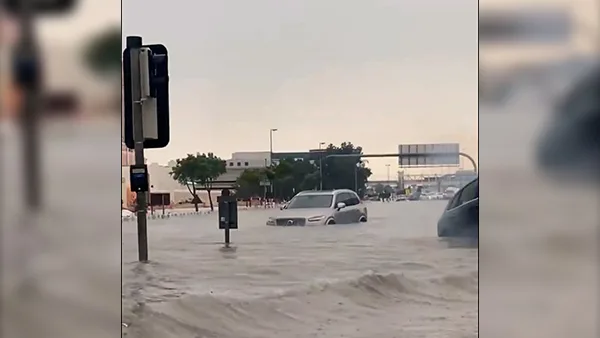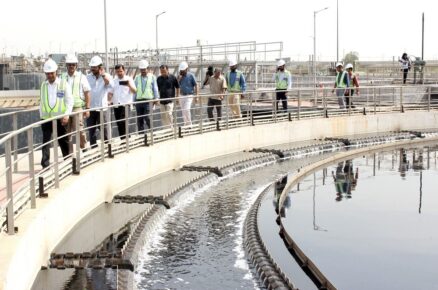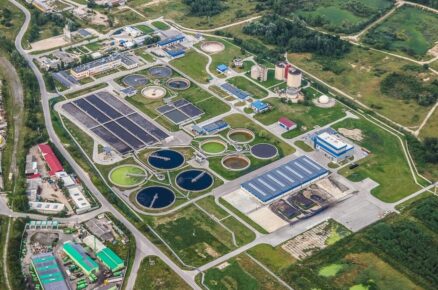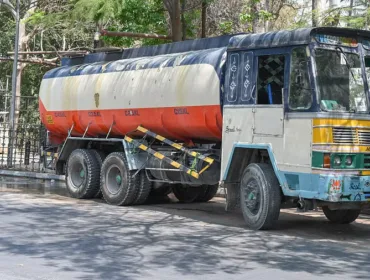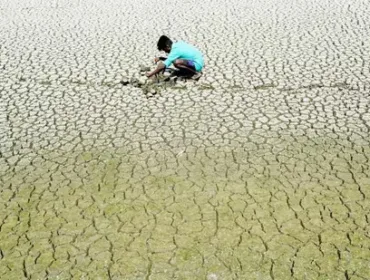The recent unprecedented rainfall in Dubai has sparked both awe and concern as the city experienced a deluge unlike anything seen in recent memory. In just 24 hours, Dubai received rainfall of more than6 inches, equivalent to about two years’ worth of rain, earning the moniker ‘rain bomb’. Social media was awash with videos and images of luxury vehicles floating listlessly on flooded roads, and planes at Dubai International Airport powering their way through high waters. The primary factor behind the flooding was a sluggish and powerful zone of low atmospheric pressure, or a chilly pocket of air at higher altitudes, which triggered clusters of intense thunderstorms across the United Arab Emirates and neighbouring regions.
While many armchair meteorologists suggested excessive cloud seeding, which Dubai is known for, as the cause, there is no record of the technology having produced such severe, large-scale and long-lasting, thunderstorms. Furthermore, reports indicate the UAE was not conducting seeding operations on the day of the flood and also that model projections showed heavy rainfall without incorporating cloud seeding. All these factors strongly suggest seeding was not a major contributor. The fact is that such hydrological extremes, whether they are droughts or floods, are more strongly tied to climate change, which is drastically reshaping global weather patterns. While it may have been a rare occurrence for Dubai, globally such extremes are becoming more common as the sea and atmosphere warm. The event captured the imagination of the worldand accentuates the growing unpredictability of weather patterns thanks to the changing climate.
Many were quick to point out that this ‘rain bomb’ happened just months after the president of COP28, UAE’s Dr. Sultan Al Jaber, claimed there is no science indicating that a phase-out of fossil fuels is needed to restrict global warming, at a press conference during the event. The disconnect between political rhetoric and the reality of climate-change related challenges has been starkly illuminated with the juxtaposition of these events. More importantly, it underscores the critical need for concerted global action and policy coherence to address the root causes of climate change and build resilience to its impacts, emphasising the importance of evidence-based decision-making and collaboration in navigating the climate crisis.
The sudden inundation highlighted the growing vulnerability of infrastructure and logistical systems in cities, emphasising the urgent need for action. While climate-resilient urban planning and adaptation measures may serve as adequate short-term measures, reversing climate change requires substantial, impactful steps so that this and other global climate-change induced phenomena occurring throughout the world slow down and eventually cease altogether.
Erratic weather patterns, rising temperatures, and sea level rise have become tangible manifestations of climate change. From scorching summers exacerbated by heat-waves to sporadic but intense rainfall events, the world is experiencing a heightened frequency and intensity of weather extremes. These changes have not only impacted the global infrastructure and economy but have also raised concerns about water scarcity, coastal erosion, and the sustainability of human civilisation as a whole.
This ‘rain bomb’ is yet another wake-up call, in a long line of wake-up calls for the world. As even ‘developed’ cities like Dubai confront the vulnerabilities of their infrastructure and logistical systems, it becomes increasingly clear that climate resilience measures are no longer just a matter of adaptation, but a call for bold, impactful steps to address the root causes of climate change.
We need to prioritise climate resilience and sustainability initiatives, investing in renewable energy, green infrastructure, and water conservation measures to mitigate the impacts of climate change.Only through evidence-based decision-making and collaborative efforts can we navigate the complexities of the climate crisis and safeguard the future of our planet.
References:



